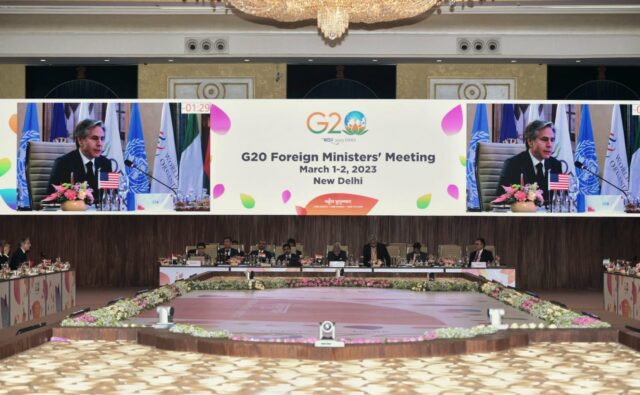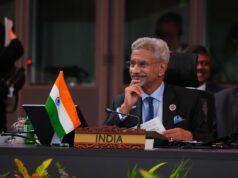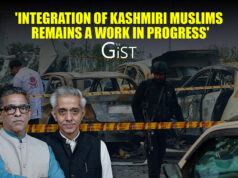NEW INDIA: The die is cast, it seems, on India’s presidency of the G20. No consensus emerged at the end of the foreign ministers’ meeting in Delhi on Thursday, a repeat of what happened at the meeting of G20 finance ministers and central bank chiefs in Bengaluru last week. In the absence of a consensus document, the chair released a summary of discussions and there the matter ended.
As External Affairs Minister Jaishankar summed it up: “There were issues concerning the Ukraine conflict. We couldn’t get everyone on the same table because of the ongoing conflict.”
The concern is whether this could impact the summit later this year, unless by some miracle, the Ukraine war ends before that. But even if that does happen, it’s clear the geopolitical tensions generated by the war will continue to impact great power relations for many years to come. This is the new “near normal” and it seems the G20 is reconciled to the absence of any solutions.
Diplomatically, Russia and China’s isolation will only deepen as will their dependence on each other. These were the only two holdouts at the foreign ministers meeting, preventing a consensus from emerging. It could imply a hardening of attitudes in both capitals and rejection of international restraints. There could be trouble ahead for countries like India.
As Prime Minister Modi noted on Thursday: “…multilateralism is in crisis today. The architecture of global governance created after the Second World War was to serve two functions. To prevent future wars by balancing competing interests. Second to foster international cooperation on issues of common interest. The experience of the last few years – financial crisis, climate change, pandemic, terrorism and wars clearly show that global governance has failed in both its mandates.”
Of immediate concern to India is the impact on the Global South, a point that Prime Minister Modi underscored.
“We are at risk today of moving back on the Sustainable Development Goals. Many developing countries are struggling with unsustainable debt while trying to ensure food and energy security for their people,” he said. “They are also the ones most affected by global warming caused by richer countries. This is why India’s G20 presidency has tried to give a voice to the Global South.”
“…there were a large number of issues which were agreed by the members,” said External Affairs Minister Jaishankar at a media briefing, “like multilateralism, gender issues, counter terrorism, anti-narcotics. Bulk of the issues concerning the Global South was agreed in the outcome document.”
But the stumbling block was the Ukraine conflict with Russia refusing to concede an inch and China backing it.
“The tough times will stretch forward,” a senior diplomat acknowledged, “and while other tasks of the G20 will continue on issues of relevance to poor and developing countries, there will be no outcomes.”
Perhaps the time has come to focus on a few areas, such as climate change funding for instance, limited to deliverables with realistic timelines.
Thirty eight years in journalism, widely travelled, history buff with a preference for Old Monk Rum. Current interest/focus spans China, Technology and Trade. Recent reads: Steven Colls Directorate S and Alexander Frater's Chasing the Monsoon. Netflix/Prime video junkie. Loves animal videos on Facebook. Reluctant tweeter.





